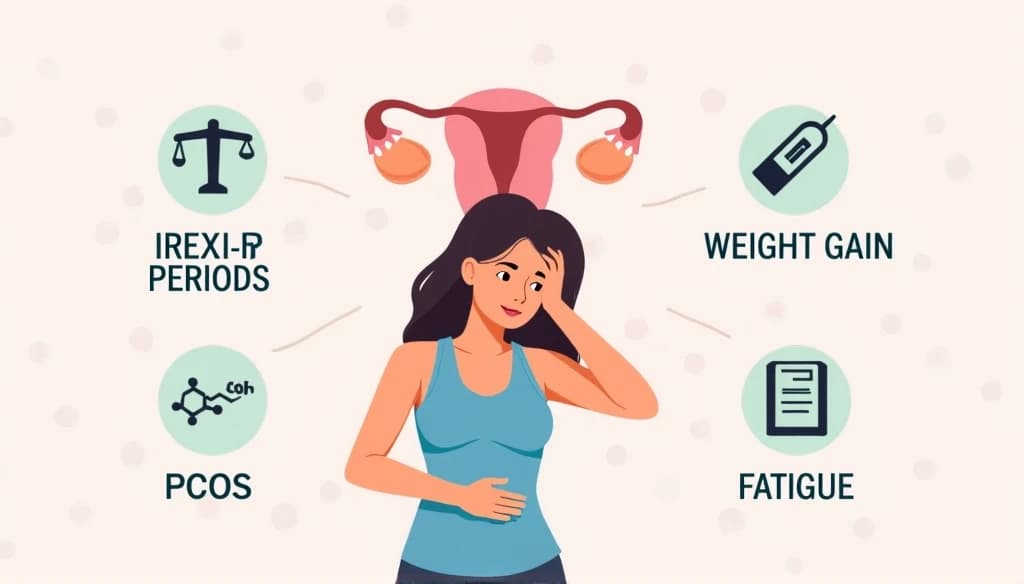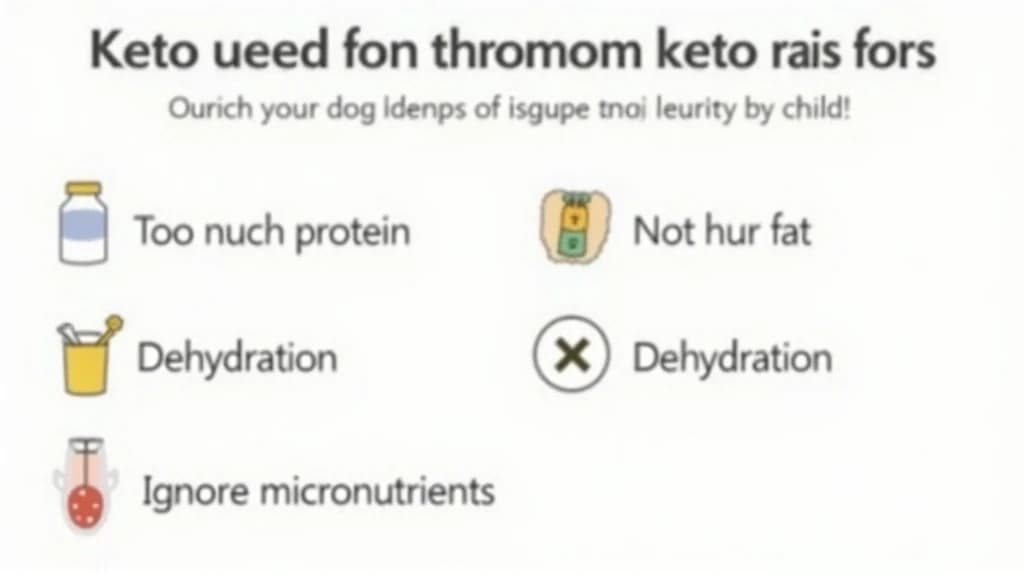Table of Contents
ToggleImagine struggling with irregular cycles, stubborn weight gain, and uncontrollable cravings—all while doing everything “right” with diet and exercise. If this sounds familiar, you’re not alone. For women with PCOS (Polycystic Ovary Syndrome), these challenges can feel like an uphill battle. But what if there was a dietary approach that could help you regain control? Enter the keto diet—a lifestyle that has sparked hope for many women with PCOS. But is keto recommended for PCOS, or is it another fleeting trend?
In this article, we’ll explore how the ketogenic diet impacts PCOS, its potential for weight loss, and real-life keto PCOS before and after stories. Let’s dive into the science, benefits, and the controversies surrounding keto for PCOS to see if it’s the right fit for you.
What is PCOS, and Why is Weight Loss So Difficult?

Polycystic Ovary Syndrome (PCOS) is a hormonal condition that affects 1 in 10 women of reproductive age. It’s characterized by symptoms such as:
- Irregular or absent periods
- Excess androgen (male hormone) levels, leading to facial hair growth and acne
- Insulin resistance, which can cause weight gain and make it hard to lose
- Polycystic ovaries visible on an ultrasound
Weight loss is particularly challenging for women with PCOS due to insulin resistance, where the body struggles to regulate blood sugar properly. This is where the keto diet for PCOS weight loss comes into play.
What is the Keto Diet?
The ketogenic diet is a low-carb, high-fat, moderate-protein dietary approach designed to shift your body into a state of ketosis. In ketosis, the body burns fat for fuel instead of carbohydrates. The standard keto diet typically consists of:
- 70-75% fat
- 20-25% protein
- 5-10% carbohydrates
By drastically reducing carbs, the keto diet stabilizes blood sugar levels and reduces the body’s reliance on insulin—a critical factor for managing PCOS symptoms.
Is Keto Recommended for PCOS?

The ketogenic diet has gained popularity as a potential solution for managing PCOS symptoms. But is it really recommended by experts? Here are some key benefits that make keto appealing for women with PCOS:
1. Improved Insulin Sensitivity
Studies show that the keto diet can significantly reduce insulin levels. This is essential for women with PCOS, as insulin resistance is a root cause of many symptoms, including weight gain, irregular periods, and hormonal imbalances.
2. Hormonal Balance
The keto diet may help lower androgen levels, reducing symptoms like acne, hair loss, and unwanted hair growth. A stable blood sugar level also supports better ovulation and menstrual regularity.
3. Weight Loss
Many women report significant weight loss on keto, even when other diets have failed. By cutting out high-carb foods, cravings are reduced, and fat-burning becomes more efficient. For those struggling with PCOS, the keto diet for PCOS weight loss is often a game-changer.
4. Reduced Inflammation
PCOS is linked to chronic inflammation, which can worsen symptoms. The high-fat, low-carb nature of keto has anti-inflammatory effects, improving overall health.
5. Better Mental Clarity and Energy
Many women with PCOS experience fatigue and brain fog. The keto diet provides a steady energy source from fat, helping combat these issues.
Keto PCOS Before and After: What Real Women Are Saying
The internet is full of inspiring keto PCOS before and after stories. Women have reported:
- Losing 20–50 pounds within months
- A return of regular menstrual cycles
- Improved skin clarity and reduced acne
- Increased energy and reduced cravings
While these results are encouraging, it’s important to remember that individual results can vary. Always consult a healthcare provider before starting keto to ensure it’s safe for your unique health needs.
How to Start the Keto Diet for PCOS

If you’re ready to give keto a try, here’s how you can get started safely and effectively:
1. Consult Your Doctor
Before starting any new diet, especially if you have PCOS, consult your healthcare provider or a registered dietitian. They can help tailor keto to your specific needs.
2. Calculate Your Macros
Use a keto macro calculator to determine your daily intake of fat, protein, and carbs. Aim for about 20-50g of net carbs per day.
3. Focus on Whole Foods
Base your meals on nutrient-dense, whole foods like:
- Proteins: Chicken, fish, eggs, and tofu
- Fats: Avocado, olive oil, nuts, and seeds
- Low-Carb Vegetables: Spinach, broccoli, zucchini, and cauliflower
4. Avoid Processed Keto Foods
While tempting, processed keto snacks can be high in unhealthy fats and artificial ingredients. Stick to whole, minimally processed foods for the best results.
5. Stay Hydrated and Supplement
Keto can cause an initial loss of water weight, leading to dehydration. Ensure you’re drinking enough water and consider supplements like magnesium, potassium, and sodium to avoid the “keto flu.”
The Science Behind Keto and PCOS: A Statistical Overview
To better understand the impact of the keto diet on PCOS, let’s look at some key statistics:
| Study/Source | Outcome |
|---|---|
| Journal of Women’s Health | Women on a keto diet saw a 12% reduction in insulin levels after 24 weeks. |
| Clinical Endocrinology | 50% of women with PCOS on keto regained regular menstrual cycles. |
| Nutrition & Metabolism | Participants lost an average of 10% of their body weight in 3 months. |
These findings highlight the potential of keto to address the root causes of PCOS, particularly insulin resistance and weight gain.
Common Mistakes to Avoid on Keto for PCOS

- Not Eating Enough Fat: Fat is your primary energy source on keto. Skimping on fat can leave you feeling tired and hungry.
- Overeating Protein: Excess protein can be converted into glucose, kicking you out of ketosis.
- Ignoring Micronutrients: PCOS can worsen with deficiencies, so ensure you’re eating a variety of nutrient-dense foods.
- Giving Up Too Soon: Keto adaptation takes time. Stick with it for at least 4-6 weeks before evaluating results.
Final Thoughts: Is Keto Right for You?
The ketogenic diet offers a promising approach for managing PCOS symptoms, particularly for those struggling with weight loss and insulin resistance. While it’s not a one-size-fits-all solution, the science and keto PCOS before and after stories suggest it’s worth considering.
If you’re ready to take control of your PCOS symptoms, consult your doctor and give keto a try. With the right strategy and mindset, it could be the breakthrough you’ve been waiting for.
Call to Action:
Have you tried the keto diet for PCOS? Share your experiences in the comments below or reach out for personalized advice to get started!
FAQs About Keto for PCOS
Can the keto diet cure PCOS?
No, the keto diet cannot cure PCOS, but it can help manage symptoms like insulin resistance, weight gain, and hormonal imbalances.
How long does it take to see results on keto for PCOS?
Many women notice improvements in energy and reduced cravings within weeks. Weight loss and hormonal changes may take 2-3 months.
Is keto safe for women with PCOS?
Keto can be safe for most women with PCOS, but it’s essential to consult a healthcare provider to ensure it’s right for you.
What foods should I avoid on keto for PCOS?
Avoid high-carb foods like bread, pasta, sugar, and starchy vegetables. Focus on whole, low-carb options instead.
Can I do keto if I don’t need to lose weight?
Yes! Even women with PCOS who are not overweight can benefit from keto’s effects on insulin and hormone regulation.





